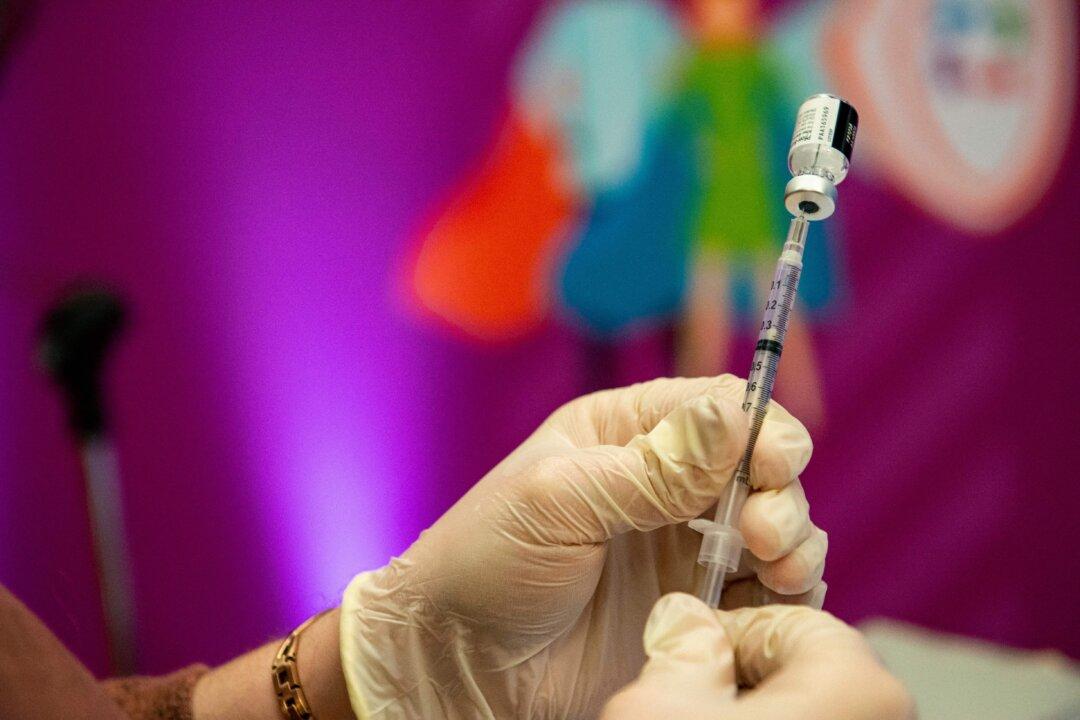COVID-19 vaccine boosters bolster protection against hospitalization but the effect wanes over time, according to a study published Feb. 11.
Researchers with the Centers for Disease Control and Prevention (CDC) and other institutions found the booster effectiveness against emergency department or urgent care (ED/UC) visits held at 87 percent during the first two months after a third dose of the Pfizer or Moderna vaccine, but dropped to 66 percent between four and five months after receipt of the booster.





